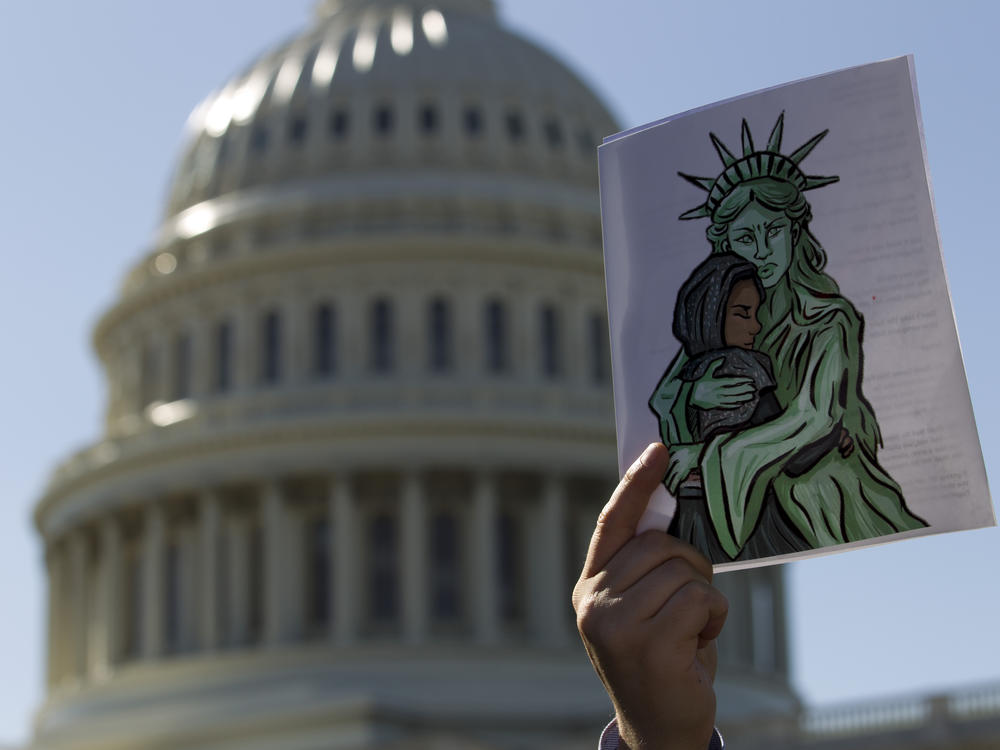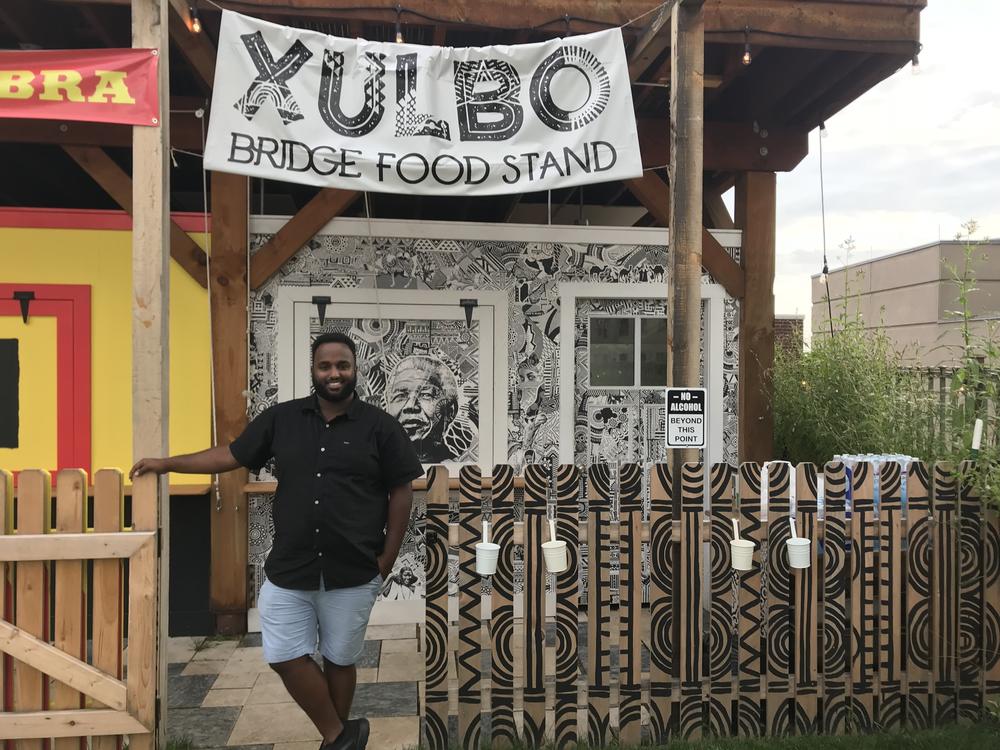Section Branding
Header Content
Life Is 'Really Tough' For Refugees Trying To Settle In Pandemic America
Primary Content
The loneliest part of coming to America is the first few months, says Mustafa Nuur, who came as a refugee from Somalia in 2014.
Now, the coronavirus makes it so much harder for newcomers, he says. Despite the pandemic, the U.S. admitted 21,533 refugees in 2020, some arriving as late as September, according to refugee resettlement agencies citing official numbers.
"Everybody is getting overwhelmed," says Nuur, who helps newly arrived refugees get settled in Lancaster, Pa. "Most of the refugees and immigrants that I work with were working in service jobs and restaurant jobs. All of those jobs are going away right now. Everybody's panicking," he says.
Federal financial support for refugees ends at 90 days, when they are expected to become self-sufficient. That hasn't changed during the pandemic. Now, refugees fear eviction and poverty as jobs are scarce. The usual challenges of moving to a new country are all the more daunting when many schools, offices, banks and places of worship are closed and work is drying up.
This comes at a time when many of the nonprofit agencies that resettle refugees are in financial peril, decimated by Trump administration cutbacks, and are hopeful for a reboot under President Biden.
"Mental health and groceries"
Two years ago, Nuur launched a startup called Bridge, connecting local residents in Lancaster with refugees to have home-cooked meals and cross-cultural experiences together. The pandemic paused the project and he's had to shift his efforts.
"We focus on mental health and on groceries," says Nuur. "For mental health, we try to communicate and give the family a sense of community every week. One Zoom call and then we drop off groceries."
In Louisville, Ky., Maha Kolko, a caseworker at the nonprofit group Kentucky Refugee Ministries, notes that it's not just the shutdowns but the slowdowns of getting settled that are difficult for the newly arrived. She is frustrated that refugee families who arrived in September are only now getting appointments to apply for a Social Security Number, which is key for getting a job, paying taxes and applying for public benefits.
"This is what I can't understand. If the U.S. government allows them to come here as refugees, what are the reasons for delaying their application process?" says Kolko. "It's been tough with COVID-19 and Trump."
Kolko knows the uncertainty of resettlement all too well, "feeling the pain and agony of waiting," she says, as she awaits her asylum hearing. She was a linguistics professor at Damascus University in Syria but fled her country's civil war in 2013.
"When I came here, running for my life, I didn't know what to do. What is the next step?" she says.
The coronavirus pandemic has made answers harder when even the first welcomes are socially distant, with just a wave from the front lawn for newcomers.
"We meet the family just from outdoor meetings to make them feel that they don't need to worry that they have enough support in the community," Kolko says.
She boosts community support by organizing church volunteers to deliver donations, especially during the holidays.
"Christmas trees with all the ornaments, food cards, some clothing. A lot of faith community groups are doing this. I'm really proud of Louisville," she says, beaming.
Pandemic stresses
Academic Bethany Letiecq has been tracking the pandemic's stresses on refugee families.
"If you are a refugee, coming here with very little, English might be limited, job opportunities can be limited, trying to just meet your family's basic needs can be a full-time job," says Letiecq, associate professor of human development and family science at Maryland's George Mason University.
Many depend on community food banks when paychecks disappear without notice, Letiecq says, and most local rental assistance programs are only short term. "Maybe a month of rental support, but we've been in a pandemic for so many months," she says.
Eviction is a real fear, says Krish O'Mara Vignarajah, the CEO and president of Lutheran Immigration and Refugee Service, one of the nine domestic resettlement agencies that coordinate with the State Department. "A significant part of the population that we're serving right now face this as a real threat," she says.
Despite a federal moratorium on evictions for renters and homeowners who fall short of payments and a ban in almost every state on ousting tenants affected by COVID-19, these rules only work if they're enforced, say tenant activists. "Some landlords are a bit more stubborn and still try to proceed," adds O'Mara Vignarajah.
Lutheran Immigration and Refugee Service launched Neighbors in Need, she says, a private fund-raising initiative. "About half of all the funds that we disbursed were for emergency housing assistance to refugees," says O'Mara Vignarajah.
"Our clients have been hit hard, far too many families are holding on by a thread," she continues, because many either work in the informal sector or they had jobs in the service industry. "What we did see was a significant downturn overnight."
Biden's pledges
President Biden extended the federal eviction moratorium through March as one of his first executive actions following his inauguration Wednesday. He has also called on lawmakers to pass an additional $30 billion in emergency aid for rent and household energy and water costs, and $5 billion for people experiencing or at risk of homelessness.
Historically, the U.S. has taken in more refugees than any other country, but the Trump administration slashed admissions to record lows. That meant deep cuts for resettlement agencies as their federal funding tracks with refugee admissions numbers. Biden made a campaign pledge to boost the annual admissions cap to 125,000 people.
O'Mara Vignarajah hopes private donations to resettle refugees continue until more federal money is available — but "normal" is still a long way off, she says.
"It's really, really tough and difficult," says Mustafa Nuur, who will apply for U.S. citizenship this year. "But I keep getting encouraged because all of these families have made it through the worst of the situation."
Copyright 2021 NPR. To see more, visit https://www.npr.org.



